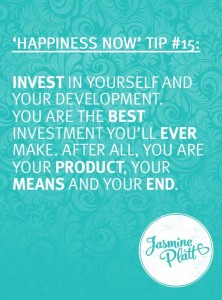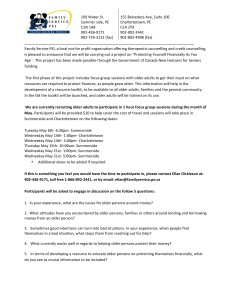 How to juggle the demands of home and parenting when you go back to school.
How to juggle the demands of home and parenting when you go back to school.
By Deena Waisberg from Canadian Living
Forty students sit at long tables in an auditorium, listening to their professor deliver a lesson. Amid the 20-somethings who are simultaneously typing away on their laptops and checking their e-mail, sit two older students in their 40s, conspicuously taking notes in the old-school style, using pen and paper. They may be in the minority – and a bit less comfortable with technology in this setting – but more and more mature students are returning to the classroom. A 2006 study found that 15 per cent of mature women were taking post-secondary courses, and experts say the numbers will continue to rise.
Adults who have already followed one work path study part time for a second career because people are working longer these days due to most provinces not having mandatory retirement at age 65, says Marlene Haley, a career counsellor and president of Find Work You Love Inc. in Vancouver.
For moms, the return to school and the desire to start a new career is often prompted by a divorce or grown (or older) children. With divorce, the thinking is, Now that I’m a single parent, I want to return to school so that I can earn more money, explains Haley. In the case of grown children, moms have an opportunity to reconnect with a passion that may have lain dormant while they were busy raising a family.
Here, we share the stories of three moms who were brave enough to go back to school.
Paulette Dunn, 40
In 1990, this Dartmouth, N.S., resident took a position as a secretary at Dalhousie University in Halifax because she wanted to return to school to learn about business and take advantage of a job perk that covers tuition costs for staff. With two young kids at home, Paulette waited until 1999 before embarking on a bachelor of management degree part time. She was nervous to start but dove in and plugged away. In 2006, a year before completing her undergraduate degree, Paulette and her husband launched Creating Dinners, a meal assembly business.
After graduating with her bachelor of management last year, Paulette soon began a master of business administration part time to hone the skills she needs to grow the company. After graduating in 2010, Paulette plans to devote herself to the business full time and open up franchises.
How she made it happen
With a full-time job and the university picking up the tab for courses, Paulette has been able to manage her education costs. A greater challenge is juggling home life, work and school. Being organized is essential. “I know how much time it’s going to take to get an assignment done, so I make sure I have time for that and my kids have time with me, too,” says Paulette. Her husband, Greg, also helps by taking on the lion’s share of the household duties. Paulette’s son and daughter, now 9 and 12, are also considerate of their mother’s busy schedule. If they see that mom has her books out, they give her space to study.
Biggest challenge
Paulette loves learning, she but admits her memory isn’t as sharp as it used to be. As a result, she needs to spend a lot of time reviewing her notes and textbooks.
A+ moment
Because she’s a mature student, Paulette enjoys a different relationship with course instructors, closer to that of a peer. And her instructors have generously critiqued her business plan and introduced her to business contacts.
Lesson learned
“Protect your time because school is a lot of work; you are doing homework every night.”
Paula Sinnott, 51
Paula (pictured right) had worked in the medical records field for 10 years in her native North Dakota. But when she married and moved to Canada, the stay-at-home mother of three worked sporadically. So, in 2001, when Paula and her husband divorced, she needed to find a new career to support herself and her youngest son and daughter, who were 14 and 12 at the time. “It was an ugly divorce. I had no money for a year-and-a-half. I needed to do something smart,” recalls Paula.
Inspired by the idea of returning to school, Paula got course catalogues from a few local colleges and came across an interior design program at Lethbridge College in Alberta. The profession appealed to her, and she could drive to school from her home in Pincher Creek, Alta. “I didn’t want to uproot my children,” she adds.
The two-year program wasn’t an easy ride, though. Paula had to take a math class to upgrade her skills, sometimes pulled all-nighters to meet assignment deadlines, and appealed a failing grade she was going to receive in a drafting class – and won. Today, with her diploma under her belt, Paula is employed as an interior designer, designing kitchens and bathrooms for homeowners and builders. Though the job provides a modest income, she loves the people she works with and has passion for her career.
How she made it happen
“Whatever it takes” became Paula’s motto. She didn’t have any income so she paid for school and living expenses with RRSP savings and credit cards. (She tried unsuccessfully to get a loan from the bank and college.) Her kids also had to take on more responsibility, such as making some of their own meals and cleaning the house.
Biggest challenge
Not being able to do as much for her kids as she wanted. “I remember sitting at my drafting table and my daughter was sitting at our kitchen island and we had our backs to each other, both doing homework. She said to me, ‘Could you be a mom for a minute and make me some supper?’ That was hard,” recalls Paula, who just kept reminding herself that school wasn’t going to last forever, and then she would be more available for her family again.
A+ moment
Paula developed friendships with several of her classmates and enjoyed working with them on projects. “It was a very intense program for all of us, and you give and receive support from one another, which brings you closer,” she says.
Lesson learned
If you don’t have the funds to make your dream a reality, then try to get a loan from the bank. The investment will be well worth it, according to Paula. “A loan is nothing; this is your life.”
Carolyn Meredith, 39
When Carolyn and her husband separated in 2002, she needed an income and wanted a job that would allow her to be on the same schedule as her kids. “I used to teach swimming lessons, and I loved going to all the mom-and-tot activities and volunteering at my kids’ nursery and elementary schools, so I knew teaching would be a good choice,” says Carolyn. So at age 34, she was accepted into the year-and-a-half master of elementary education program at Niagara University in New York. (Carolyn applied stateside because she was missing a math credit needed for teacher’s college in Ontario.) Her kids were two, four and seven when she headed back to the classroom.
After graduating, Carolyn landed a position at Holy Cross Catholic Elementary School in Georgetown, Ont., where she has been for the past three years. While there’s always “a ton of work to bring home,” Carolyn is quick to add that she “loves the job.”
How she made it happen
Tuition costs, alone, were $28,000 Cdn, and the Ontario student loan program covered only $9,000. Fortunately, Carolyn’s father cosigned for a line of credit, and he also helped pay for her living expenses while she was in school. Carolyn’s retired mother pitched in, too, looking after her kids.
Biggest challenge
Carolyn had a household to run and three young kids to look after. “It took the first two to three months to learn to balance being with my kids and absorbing all of this new learning,” she says. Her own studying commenced only after the kids went to bed at 8 or 9 p.m. Carolyn often ended up crashing on the couch at 3 or 4 a.m. for a few precious hours of sleep.
A+ moment
School was exciting because it was truly the start of a new life for Carolyn. For the first time since having her children, she had the opportunity to remember who she was as an individual. “I was in a class of about 36 people and we all took the same courses. The whole group of us would go for lunch, and it took months to get used to the fact I could just sit there and be with adults.”
Lesson learned
Carolyn notes that for several years there was a teacher shortage in Ontario, but by the time she graduated, far fewer jobs were available and some graduates didn’t land positions. “If you’re deciding to go back to school, really research what the job market is like in your chosen field,” advises Carolyn. “Make sure you don’t invest all that time and money and then end up not being able to work in the field you chose.”
Virtual school
Can’t find the time to get to a campus? Study for a degree, diploma or certificate with distance learning. Here are a few options to look into.
• Athabasca University, which is funded by the province of Alberta, offers more than 700 individual courses.
• Canadian Virtual University, a partnership of universities, offers 2,500 courses, covering a variety of fields, including arts, science, business and administrative studies, commerce and more. You can take a bachelor of arts in women’s studies through Laurentian University in Sudbury, Ont., a master of counselling through Athabasca University, or a human resource management certificate through the University of Manitoba. Some courses are entirely web-based, while others may mail study packages or feature teleconferencing, computer conferencing, audiotapes and other technologies.
Sourced From: http://www.canadianliving.com/life/work/should_you_go_back_to_school.php









